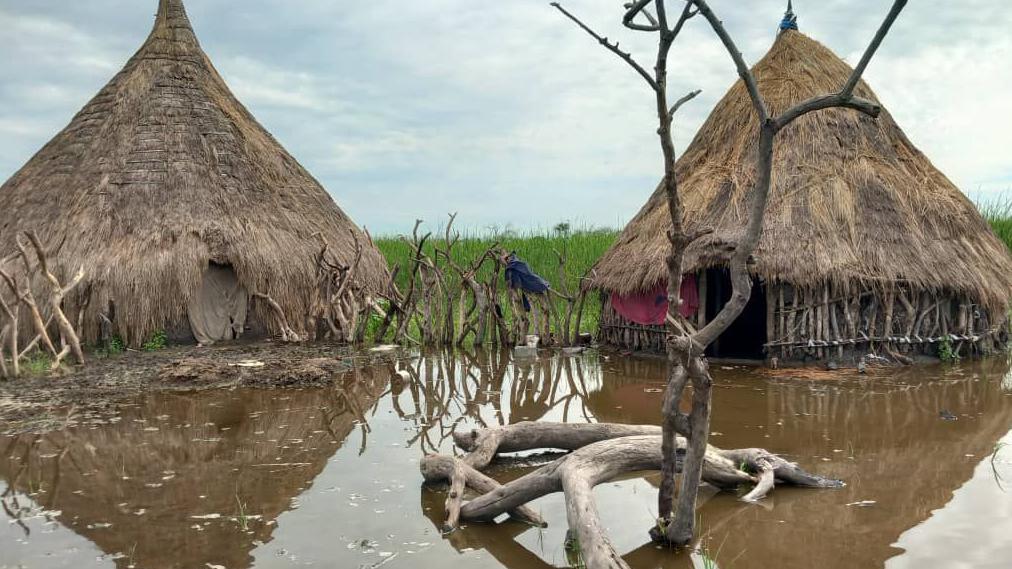In recent months, South Sudan has experienced catastrophic flooding that has affected over a million people, according to the United Nations Office for the Coordination of Humanitarian Affairs (Ocha). More than 250,000 individuals, primarily in northern regions, have been displaced from their homes due to the surging waters. The floods are among the worst the country has faced in decades, exacerbating an already dire humanitarian crisis in one of the world’s youngest nations, which has a population exceeding 11 million. As floodwaters rise, many affected residents are forced to seek shelter on higher ground, but these areas are not always accessible due to the relentless rainfall. The ongoing floods have heightened the difficulties in delivering much-needed humanitarian assistance to those in crisis.
Pibor, located in eastern South Sudan, has been particularly hard hit, with government relief agencies reporting that approximately 112,000 individuals have lost their homes there. Joseph Nyao, the director of Relief and Rehabilitation in Pibor, emphasized the severity of the situation, revealing that many of those who fled their homes left without any provisions, including food. The government has been urging people residing in flood-prone areas to move immediately to designated higher grounds for their safety. The continuous rise in water levels suggests that the pattern of displacement is ongoing, posing grave risks to the health and survival of those affected.
Forewarnings about the potential for exceptional flooding were issued as early as May by the South Sudanese government, calling for international awareness and assistance. The heavy rains and subsequent flooding have severely impacted the nation’s infrastructure, making 15 major supply routes impassable and hindering the delivery of humanitarian aid to around 500,000 individuals across various regions. These challenges compound the existing humanitarian issues in South Sudan, where the impacts of an 18-month civil war in neighboring Sudan have led to significant challenges in governance and resource management.
In the face of this natural disaster, the ongoing humanitarian crisis has become increasingly pronounced, with South Sudan grappling with the influx of over half a million Sudanese refugees and returnees who have sought safety within its borders since April of the previous year. The combination of natural disasters and the legacy of violence has placed unprecedented strain on South Sudan’s ability to respond to humanitarian needs. Ocha has warned that the country’s capacity to provide adequate aid and relief is being further stretched, underscoring the growing urgency for international support and intervention.
The humanitarian landscape in South Sudan remains precarious, as authorities and relief organizations strive to navigate the dual crises of displacement due to floods and the complications arising from cross-border influxes of refugees. The challenges to delivering humanitarian aid are not merely logistical; they reflect broader systemic issues within South Sudan’s governance and infrastructure that have been exacerbated by years of conflict. As the monsoon season continues, the resilience of the affected communities is under immense threat, prompting grassroots and international actors to rally for immediate assistance.
In summary, the humanitarian catastrophe unfolding in South Sudan, driven by unprecedented flooding and compounded by external refugee crises, calls for urgent action. The situation underscores the need for both immediate humanitarian response and longer-term strategies to enhance the nation’s resilience against such disasters. Collaborative efforts between local authorities, international organizations, and neighboring countries are vital to mitigating the impacts of flooding and fostering stability in a region that has faced significant upheaval. Enhanced coordination and proactive measures are essential for addressing the needs of those displaced and ensuring that aid reaches the populations most at-risk as South Sudan navigates this complex crisis.

